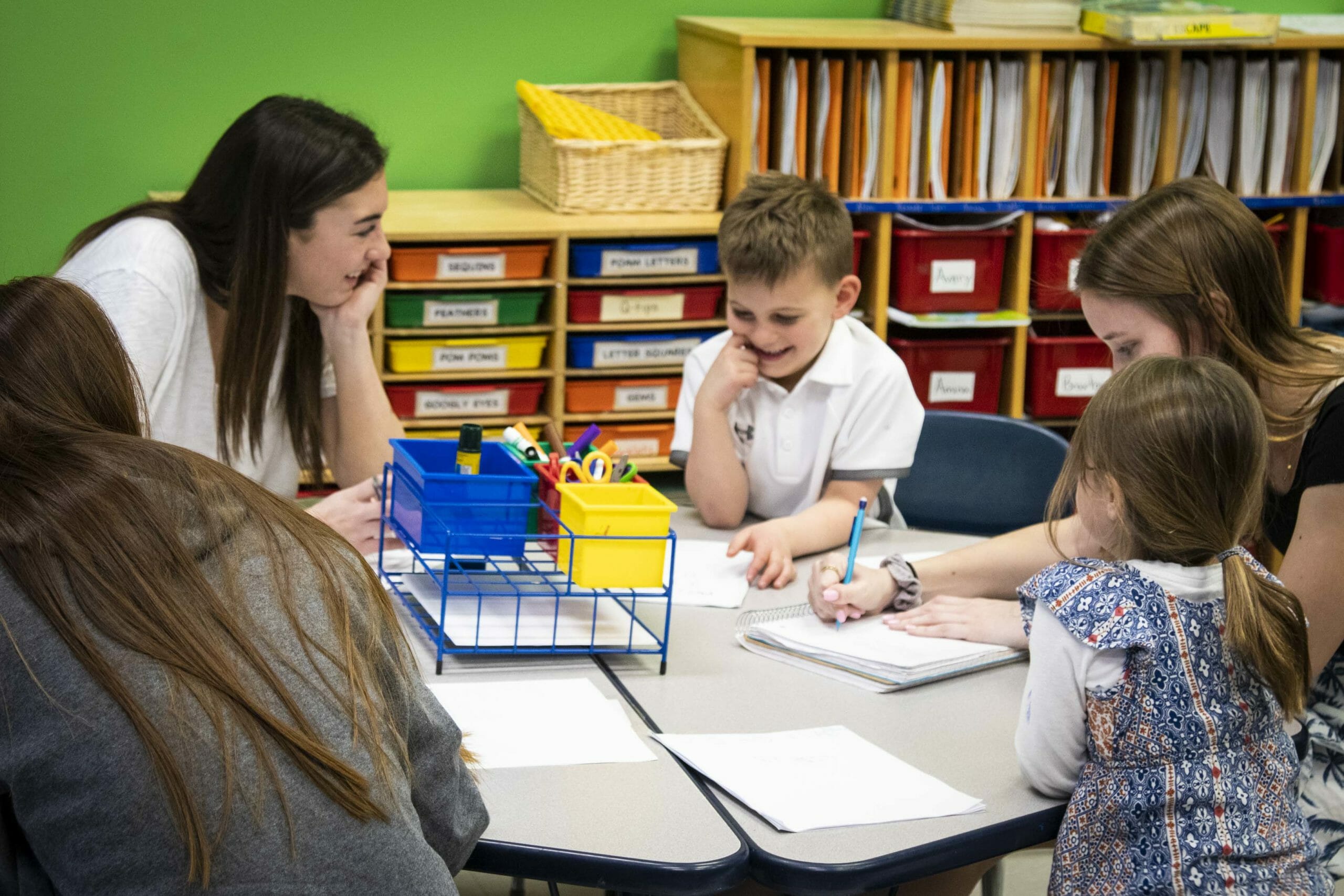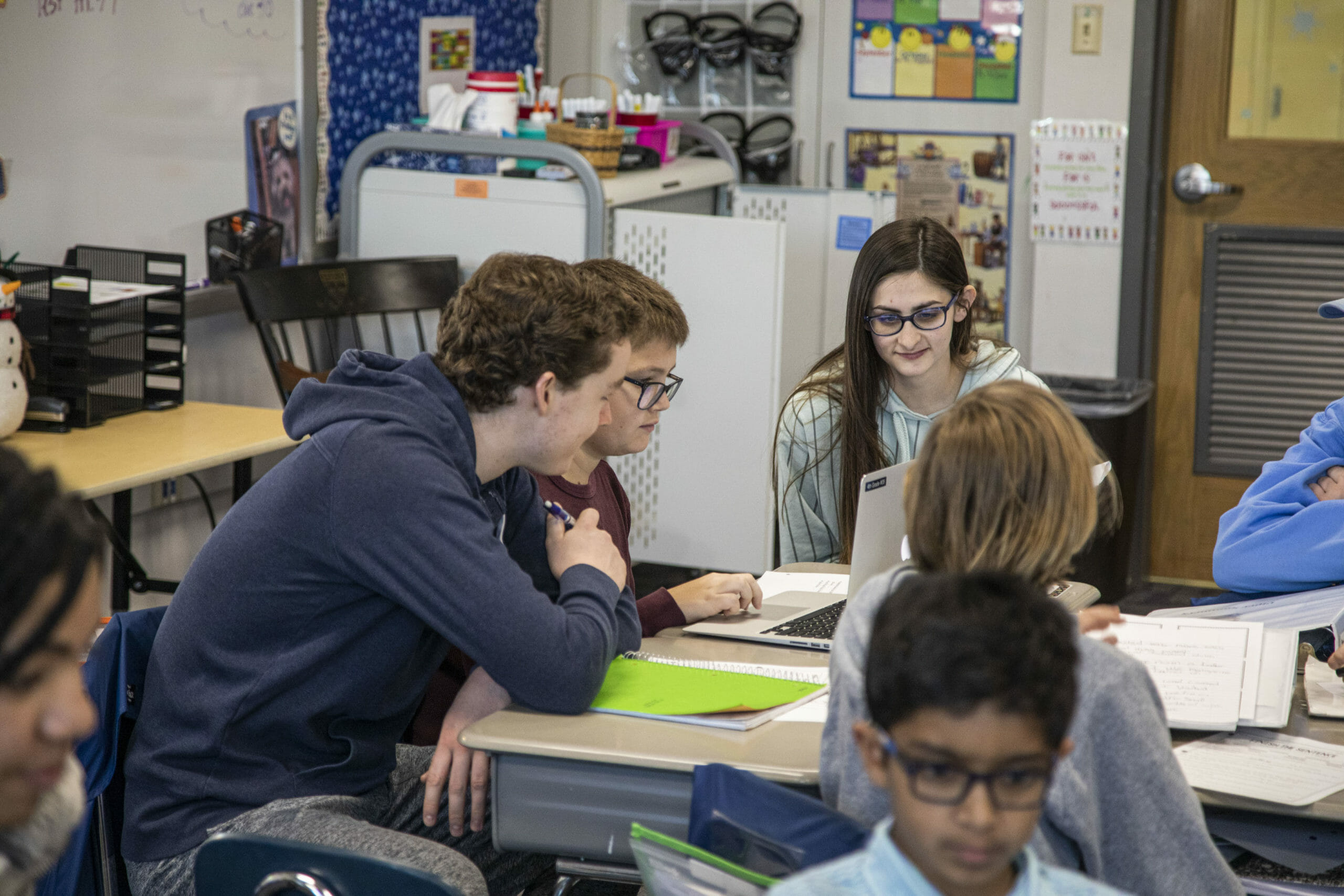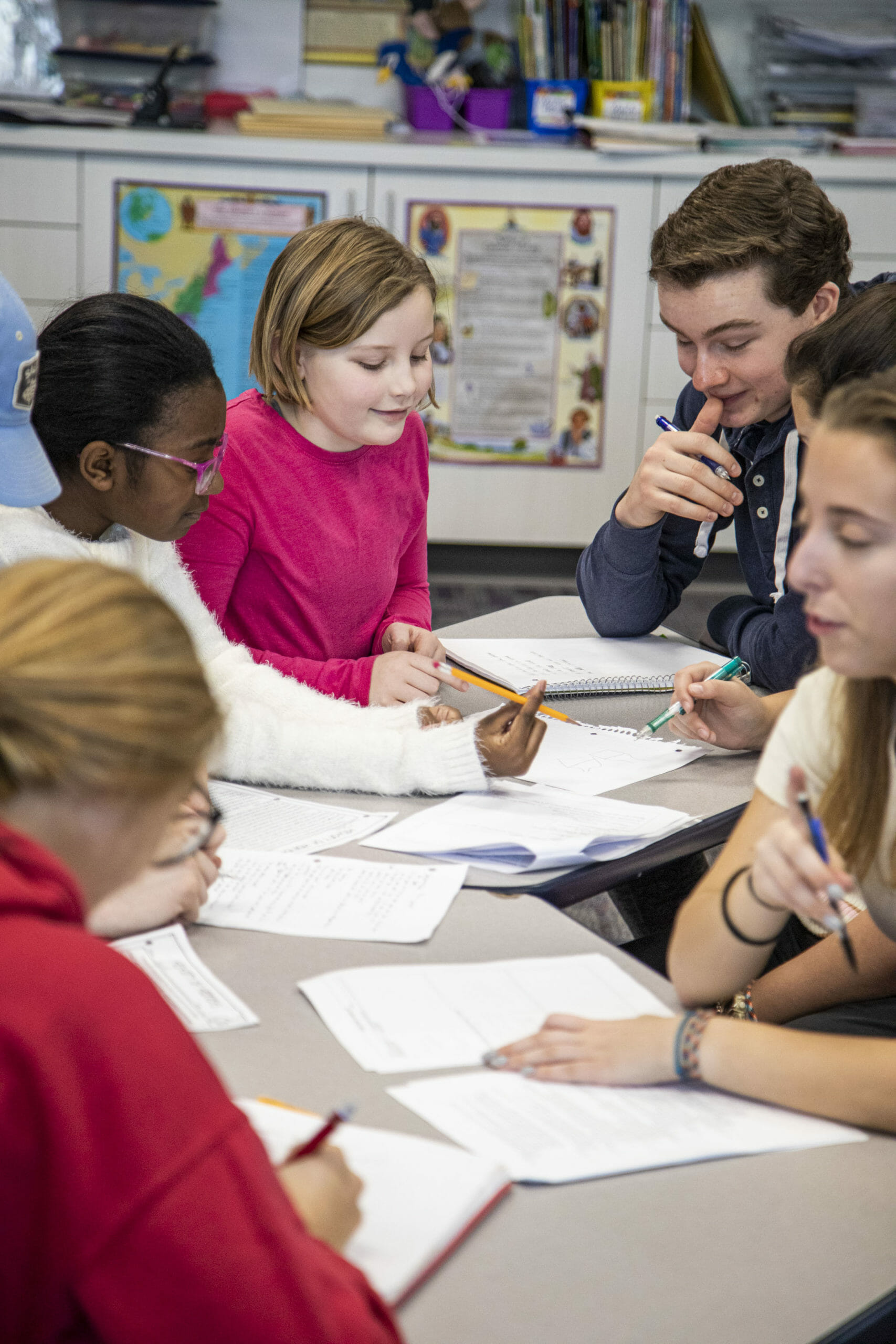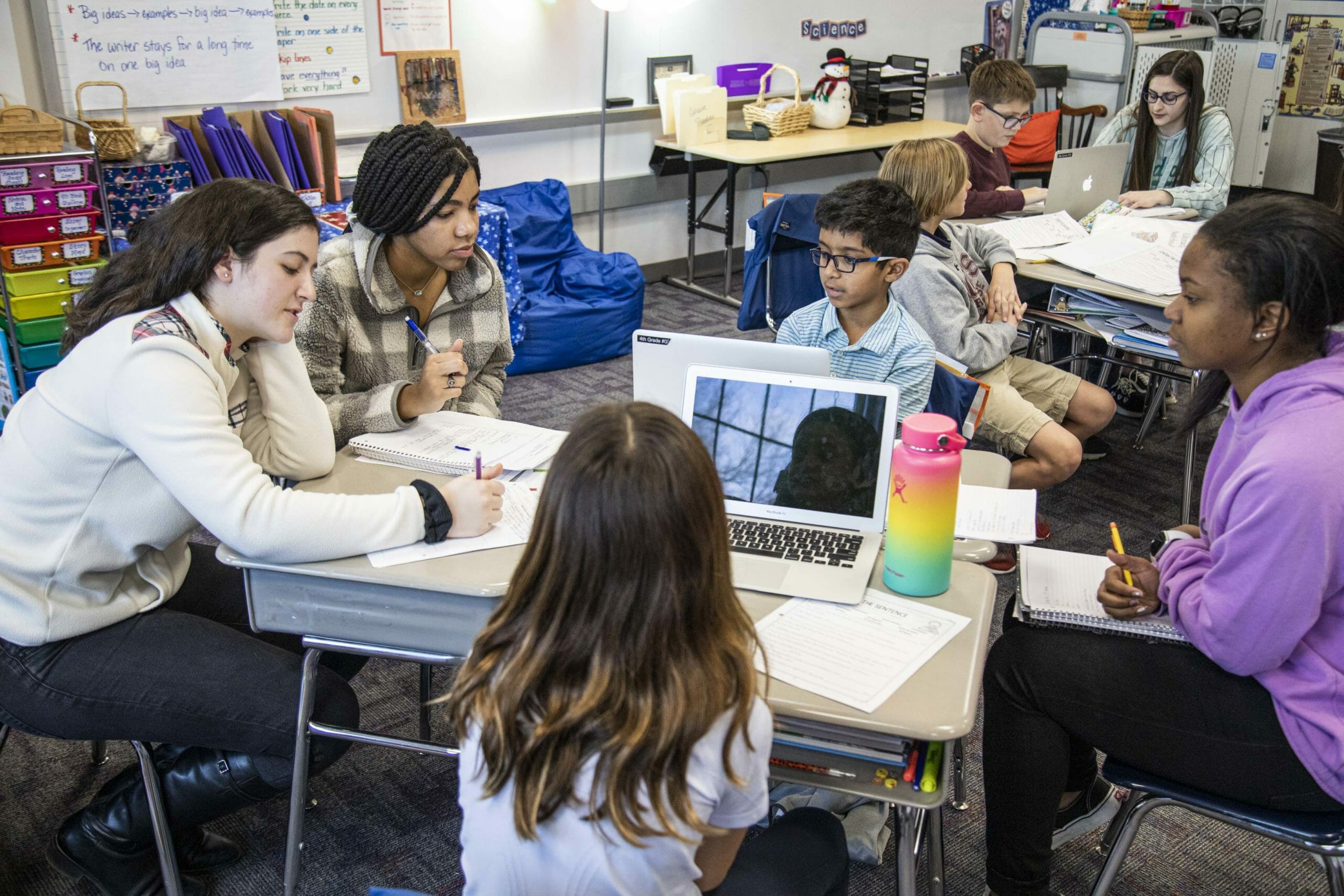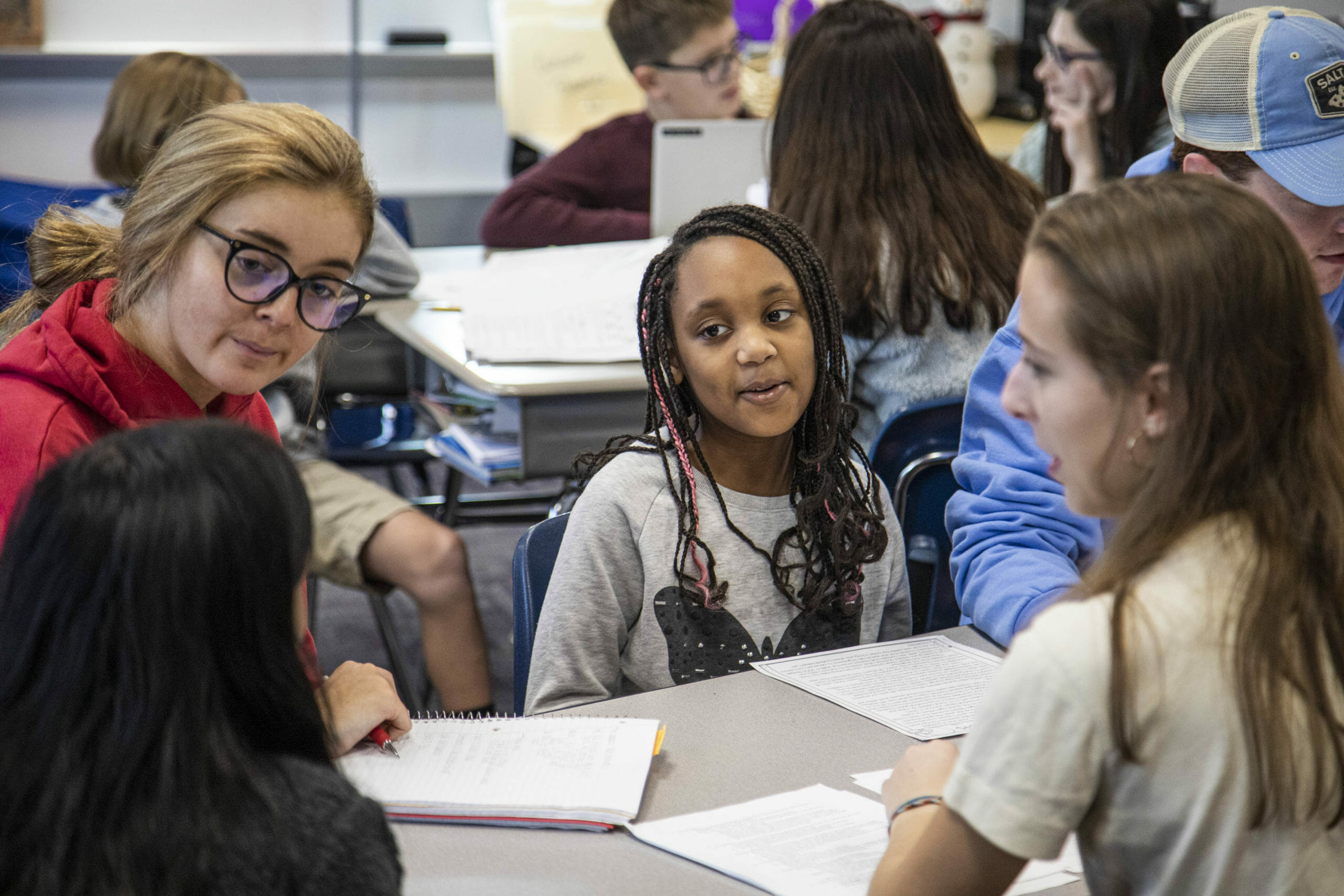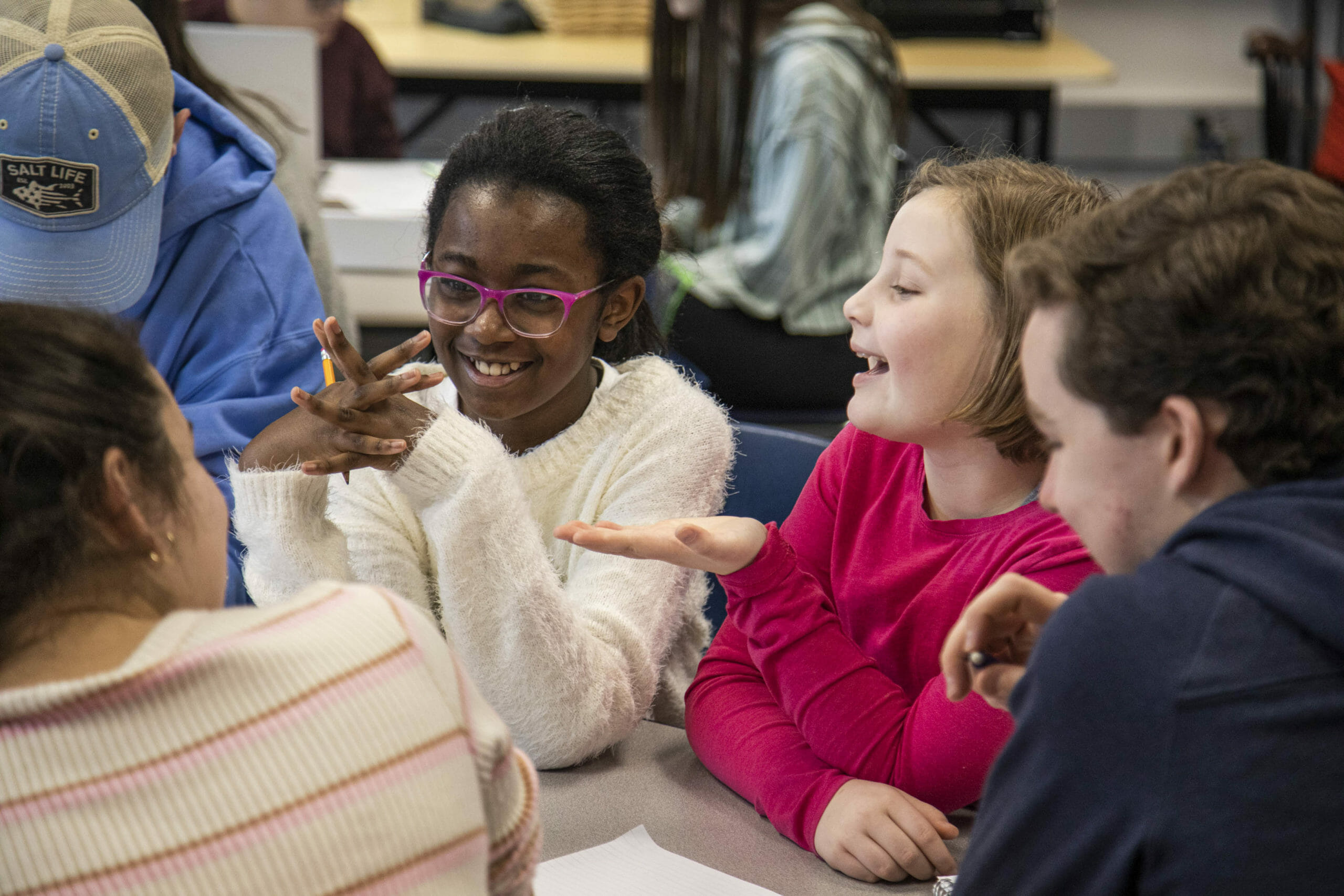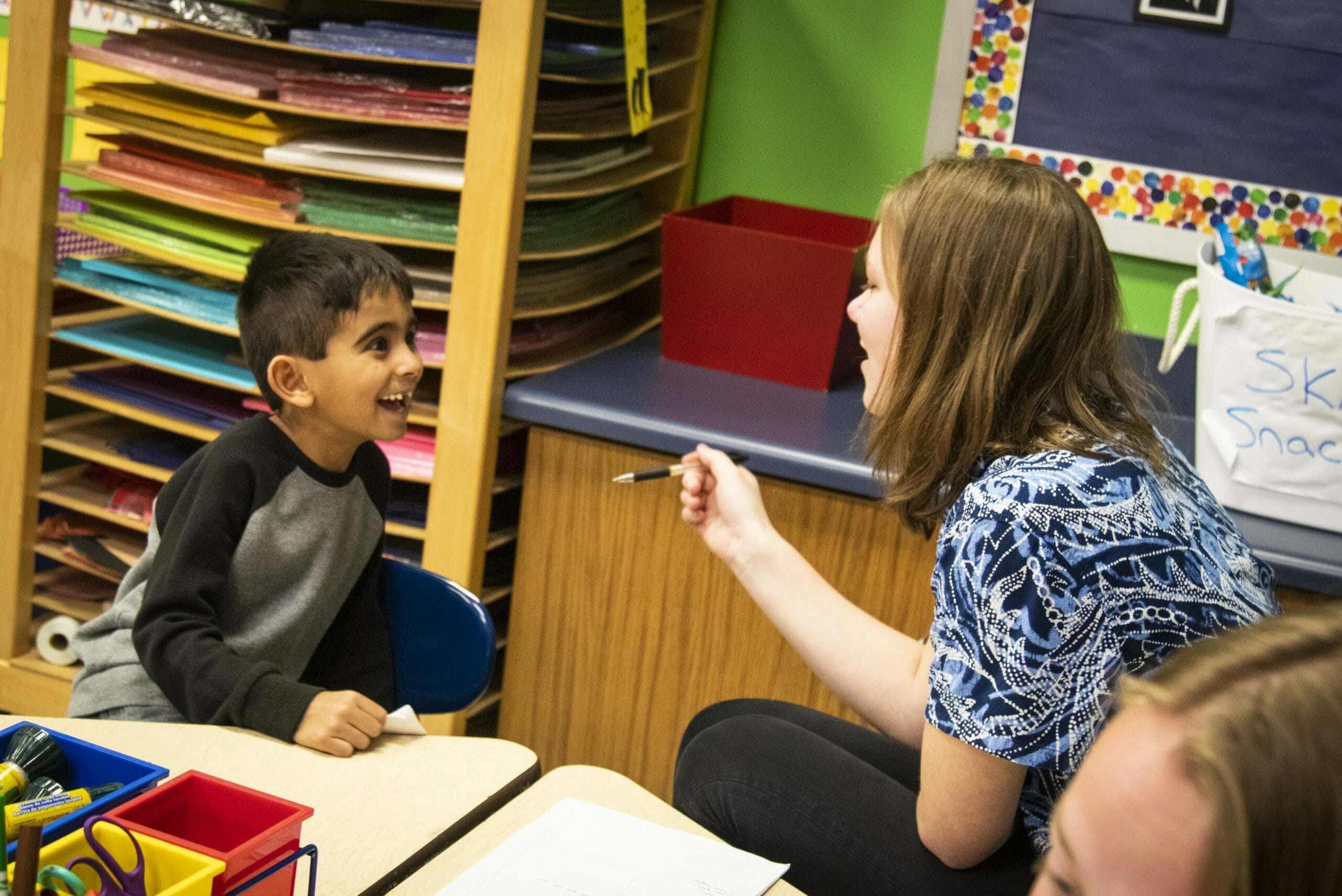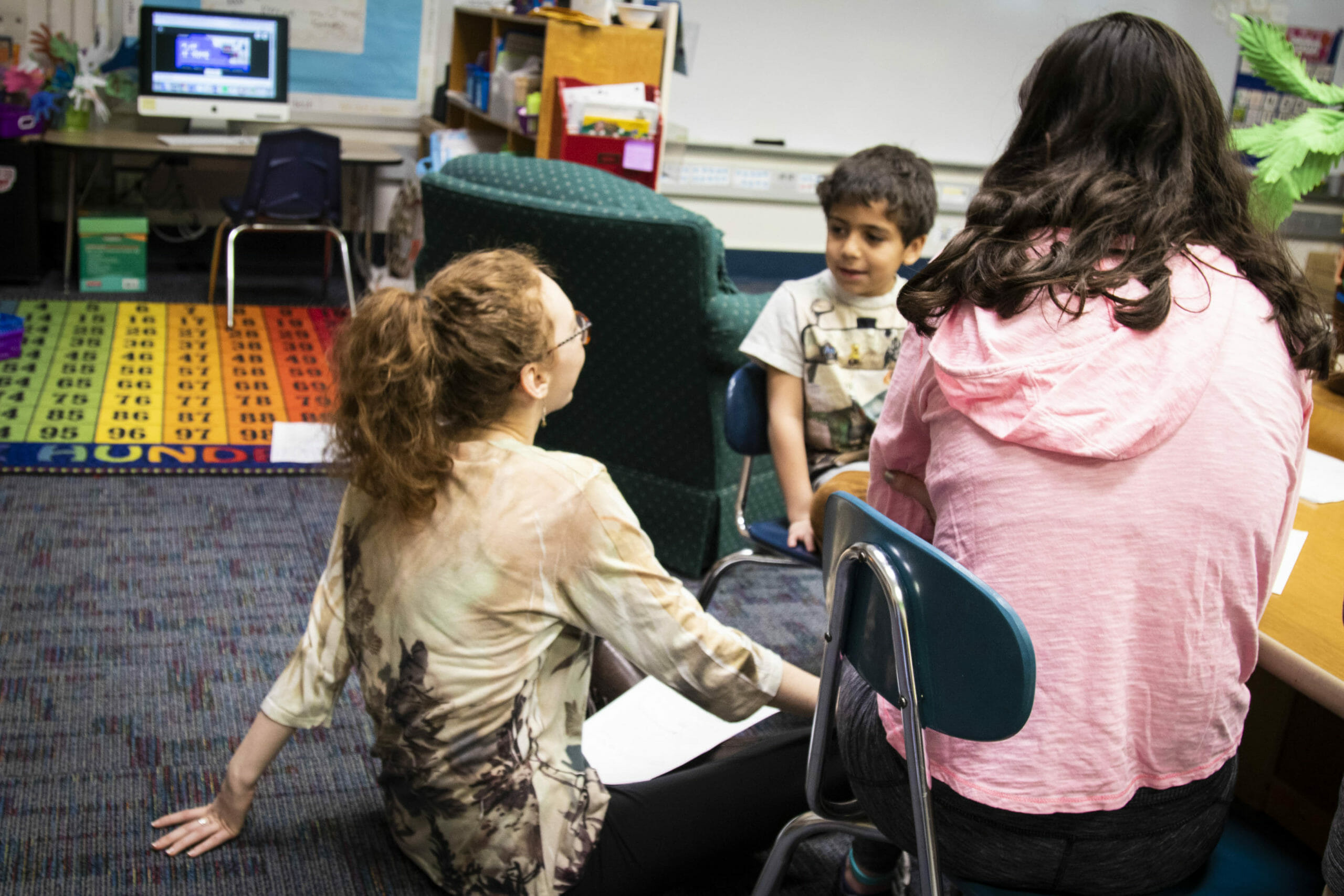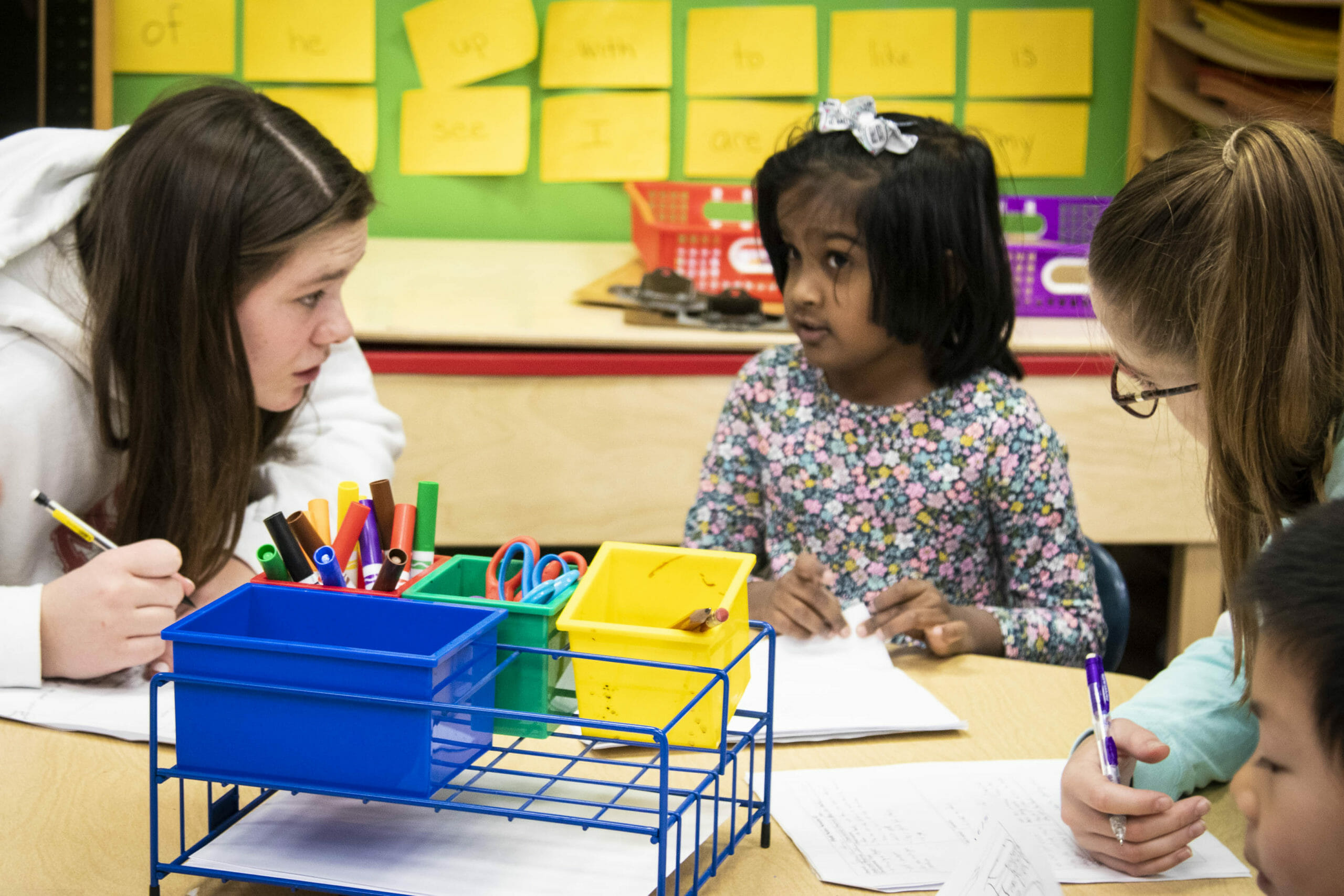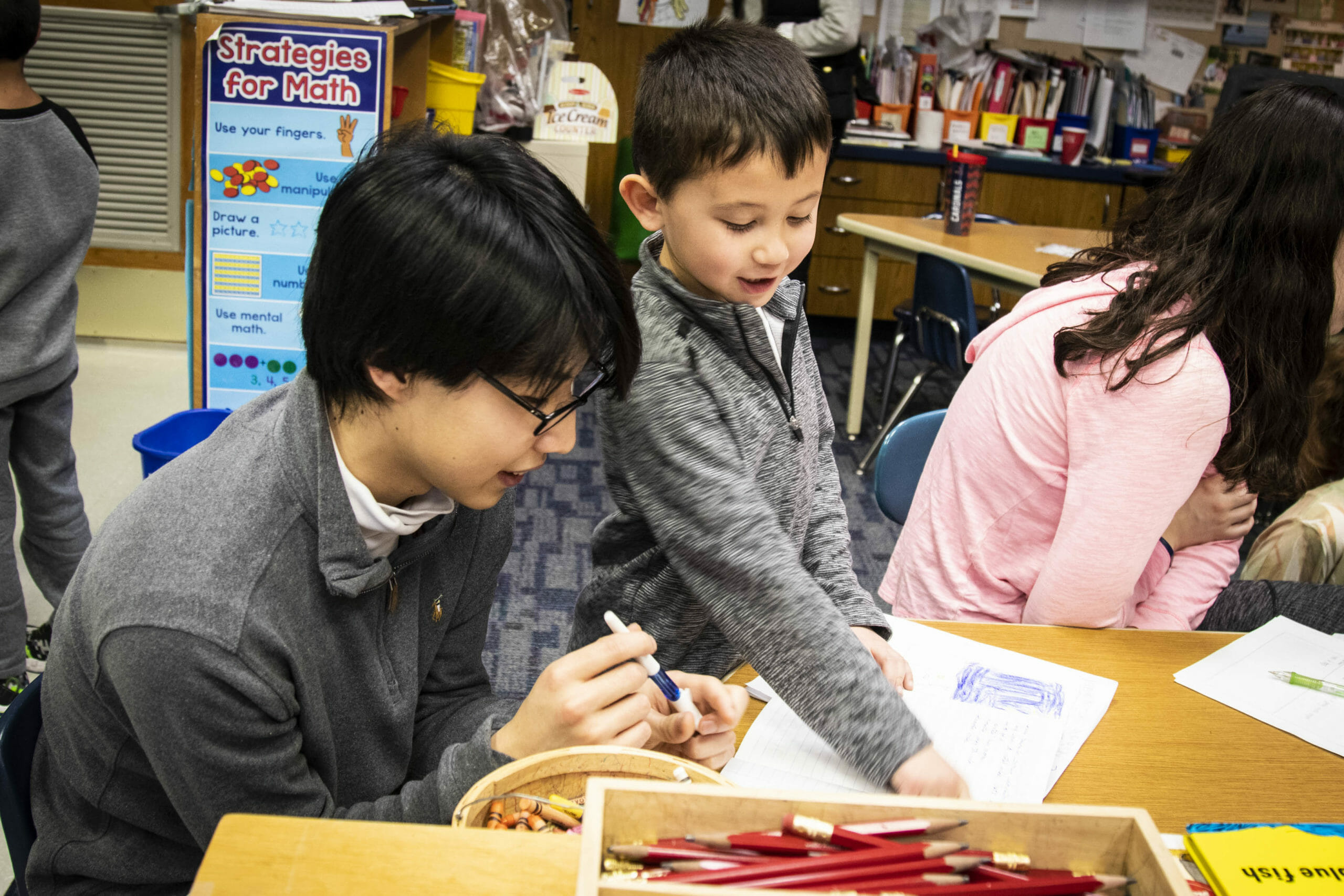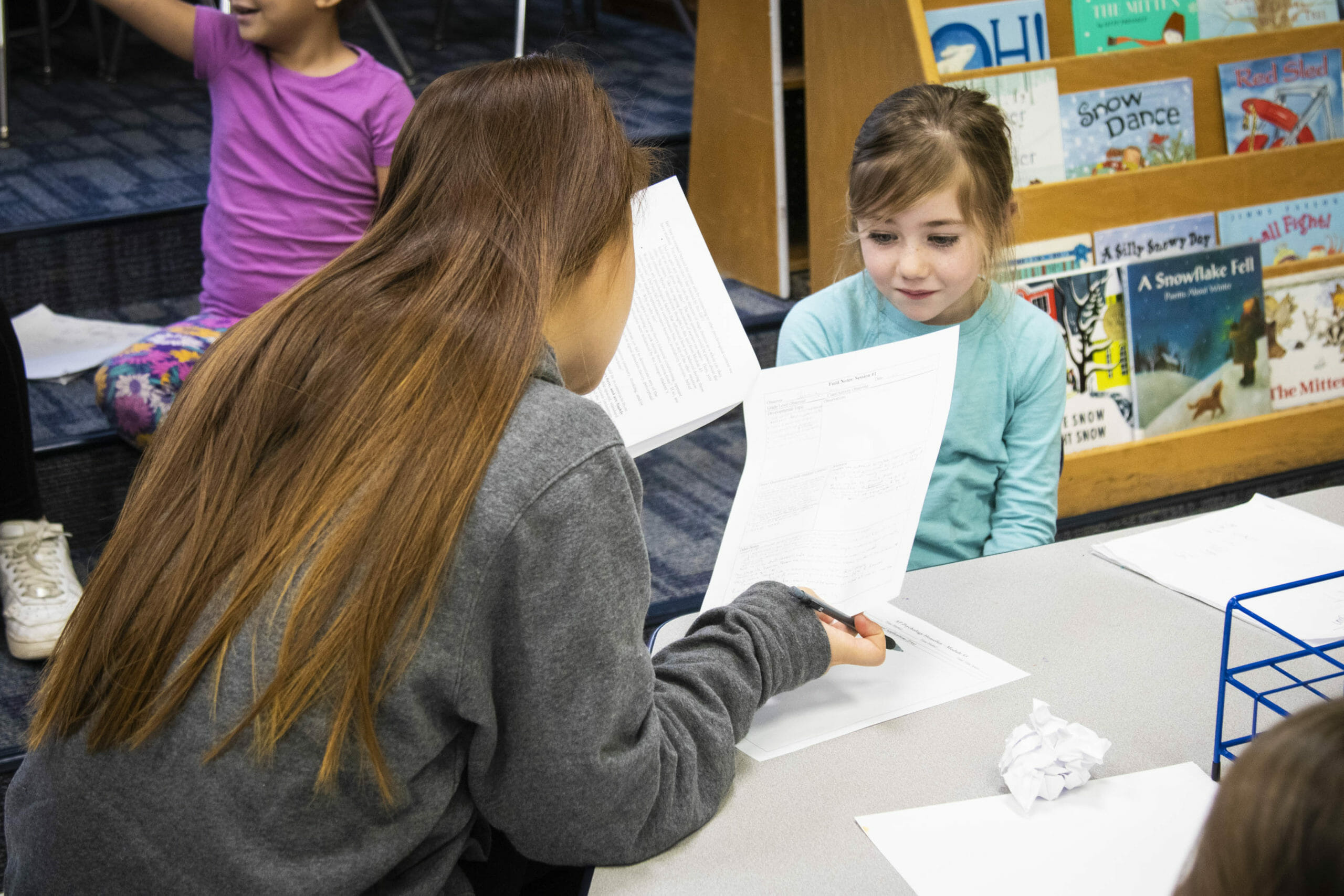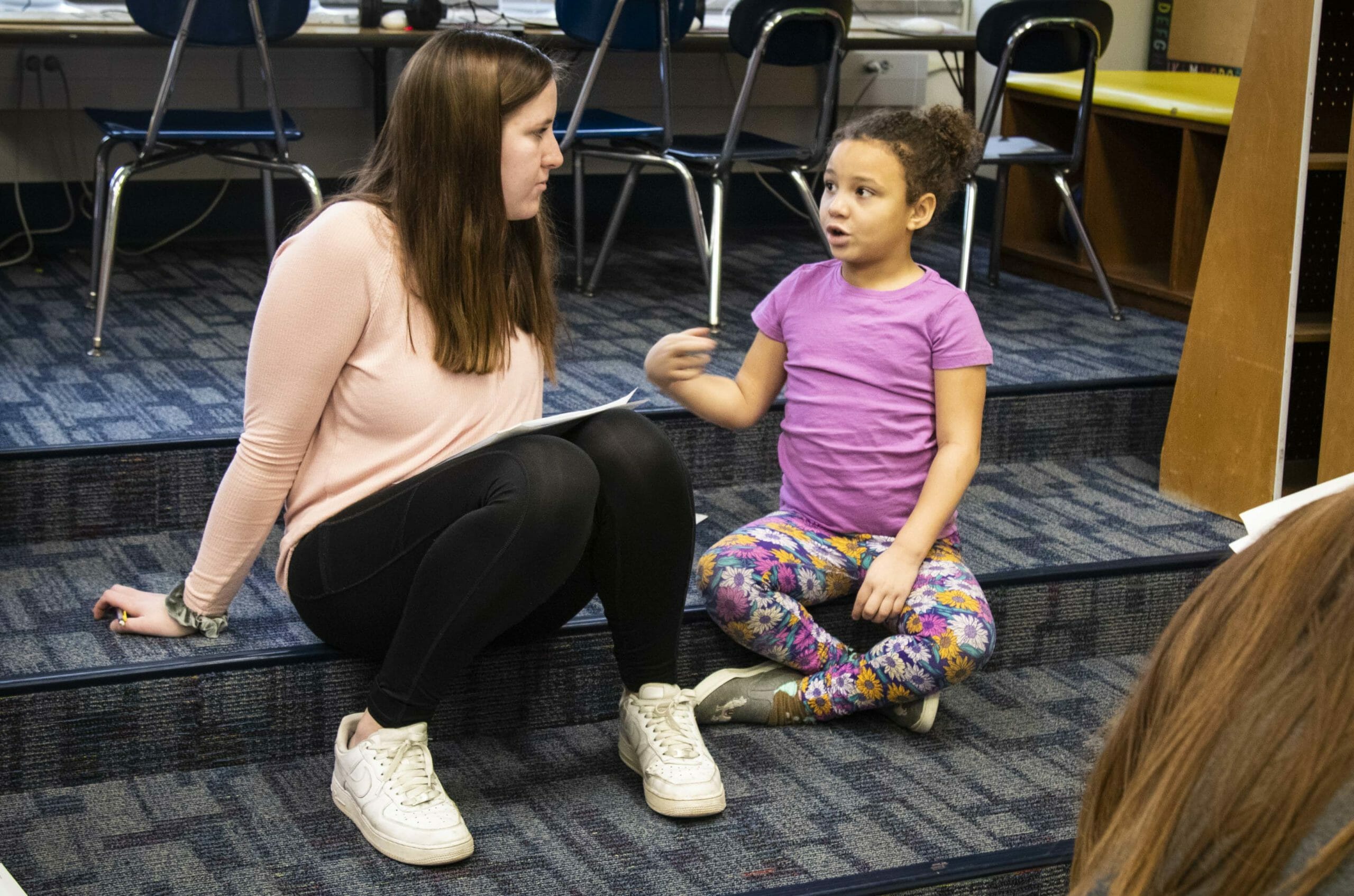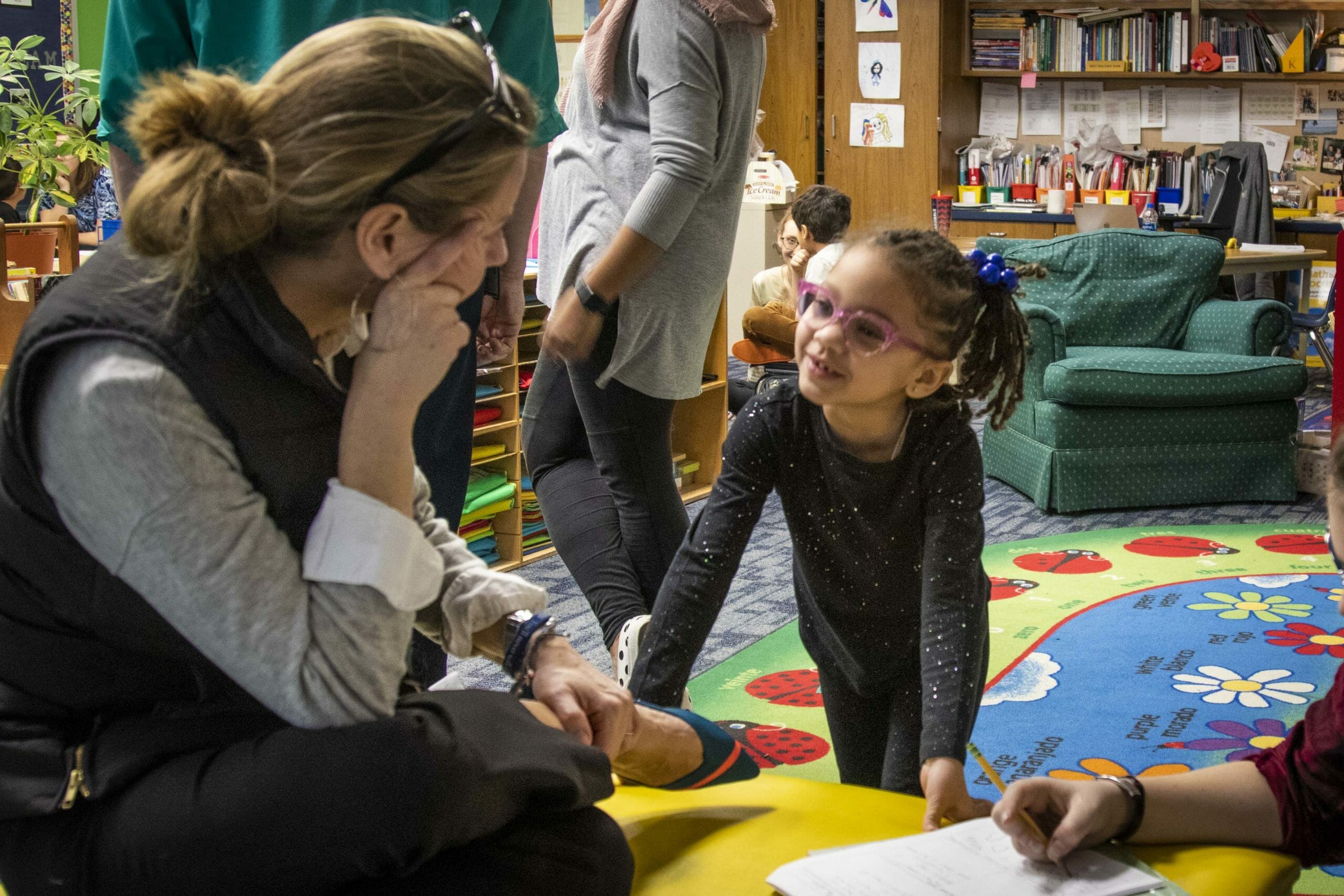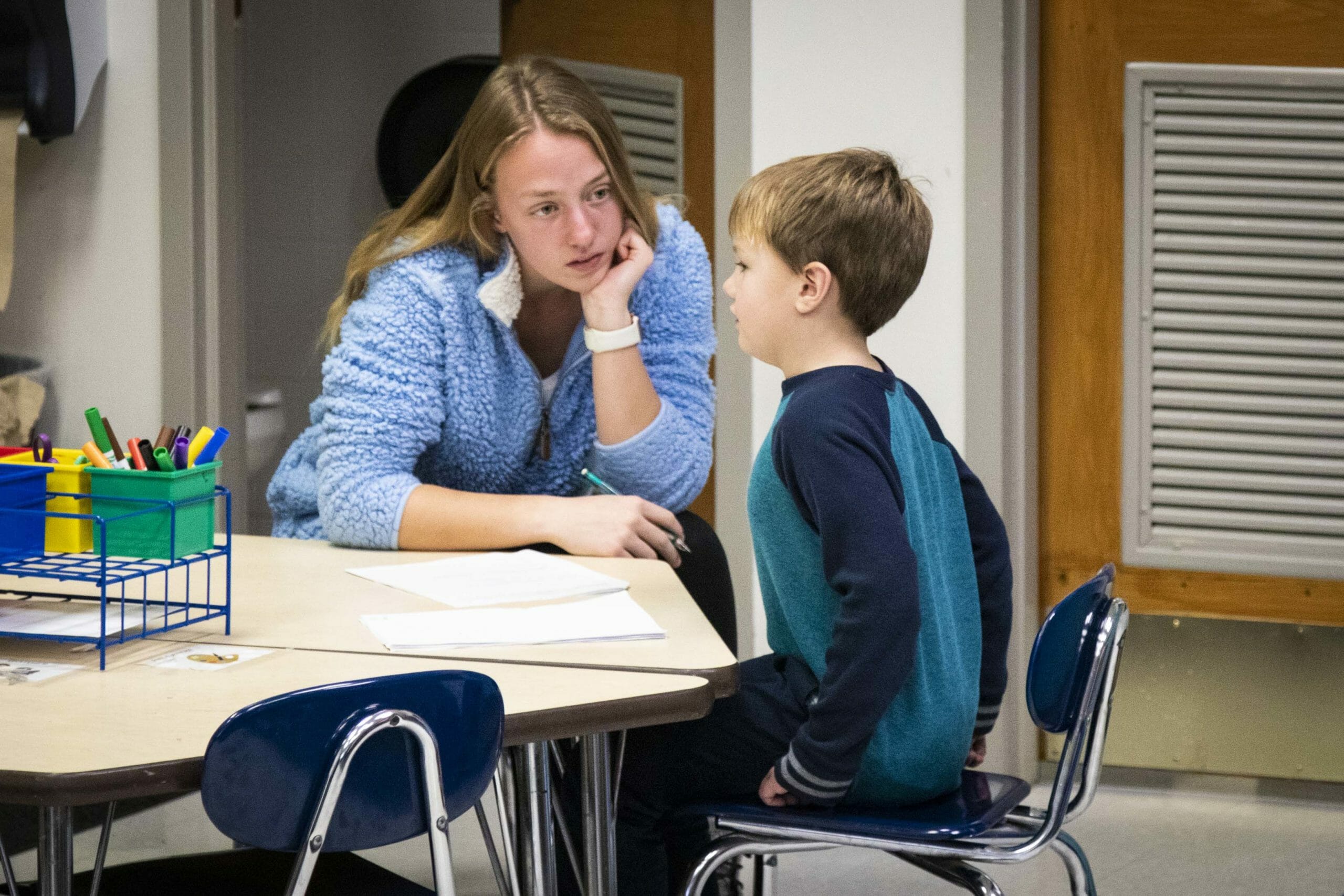Upper School « psychologists » recently engaged with Beasley students to study child development in a real-world setting. These Beasley interactions followed « textbook learning » about basic principles of developmental psychology and served as an opportunity for AP Psychology students to see many of these principles in action. In turn, our youngest learners had the chance to share their recent accomplishments and knowledge with the older students they admire.
For example, senior kindergartners have been working on a series of « How To » books, and they shared them with their AP Psychology partners. The Upper School students then asked self-generated questions of the children to dig deeper into a child psychology concept they’d been researching in class. Their research « subjects » may be small, but these « psychologists » are studying big ideas such as stages of cognitive development, gender perceptions, relative influences of parents vs. peers, abilities with moral reasoning and stages of psycho-social development.
Amarah Friedman ’20 enjoyed her time in the Lower School. She said, « It was fascinating to see the cognitive difference between third-graders and kindergarteners; I hadn’t realized how dramatic it is before I saw it in action. I learned a lot about how children solve moral dilemmas and perceive authority figures. Needless to say, it’s very different from adolescents and adults. Aside from having a great time with the kids, it was incredibly helpful to see the concepts we’ve been discussing to come to life in the Beasley classroom. »
